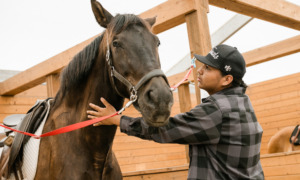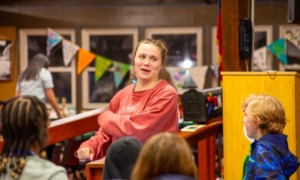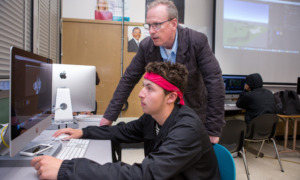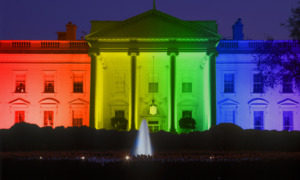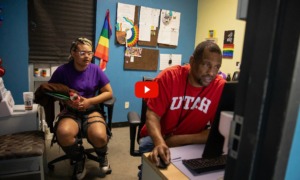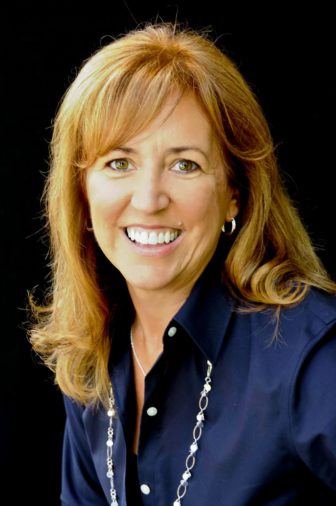
Gretchen Barry is a writer, youth mentor and court-appointed special advocate in Northern California.
By nearly every measure, youth mentoring programs work. According to the National Mentoring Partnership, among other findings, students who meet regularly with a mentor are:
• 55 percent more likely than their peers to enroll in college
• 78 percent more likely to volunteer regularly
• 130 percent more likely to hold leadership positions.
Despite numerous studies that prove the benefits of mentoring, recruiting mentors is an enormous challenge. But an even bigger challenge is recruiting male mentors into these formal, structured programs. According to Big Brothers Big Sisters of America, 21,000 boys are waiting for a Big Brother, twice the number of girls waiting for a Big Sister. According to BBBS, “more than 70 percent of the children waiting for a Big are boys, but only three out of every 10 inquiries to volunteer come from men.”
I am a youth mentor and court-appointed special advocate (CASA), and from the moment I stepped into the first training class, the lack of men in the program troubled me. Why? Because I believe that diversity in any form produces a more meaningful experience as a whole.
On average, women account for the vast majority of mentors in the United States, and that is consistent with my experience as a mentor in Northern California. Of the 15 mentor and CASA recruits in my training class, two were men.
But does gender really matter?
Few studies have been done that explore the impact of gender on youth mentoring, and the studies that do exist are far from definitive, so I asked Kathryn Matthews, executive director of Child Advocates of Placer County, California, for her thoughts on how gender impacts youth mentoring. “There are proven statistics showing that children who live without a father figure are more likely to be involved in criminal activity, premarital sexual activity, do poorer in school and participate in unhealthy activities,” said Matthews. “Young, male youth need male role models.”
According to a 2014 report commissioned by MENTOR: The National Mentoring Partnership, the number of structured mentor programs has grown during the past two decades, so the need for committed mentors is greater than ever.
So, how does an organization develop a more gender-diverse team of mentors? Mentor Me, a growing youth organization in Petaluma, California, has employed various methods to do just that. “We have actually had quite a lot of success in the last few years recruiting more men,” said Deborah Dalton, the group’s executive director. Dalton offers examples of recruiting tactics that have worked for her organization:
• Recruit mentor teams. Have female mentors include their male partners in the mentorship. When the men get more comfortable and see what it’s about, they will take their own mentee, or the pair will take on a sibling or second mentee.
• Use experienced male mentors as influencers. Have existing male mentors recruit their friends and co-workers.
• Create project-based mentoring activities. When mentoring begins around a project, such as woodworking, car mechanics, gardening or painting, men are more inclined to get involved.
Other ways mentor programs can recruit more male mentors:
• Partner with local law enforcement to brainstorm programs that will encourage officer involvement.
• Survey the youth in your organization and find out what activities they are most interested in. Make those the focus of project-based programs.
• Encourage local business leaders to make mentoring a part of their community outreach plan. Provide materials that explain the benefits of mentoring for men and women.
Organizations that are up to the herculean task required to develop the necessary programs can be successful in creating not only gender diversity but cultural diversity as well. In addition, LGBTQ mentor recruitment programs must be addressed in order to best support LGBTQ youth.
As President Obama said in 2014 when he launched My Brother’s Keeper, “That’s what ‘My Brother’s Keeper’ is all about. Helping more of our young people stay on track. Providing the support they need to think more broadly about their future. Building on what works – when it works, in those critical life-changing moments.”
Strong community mentor programs are critical to the well-being of our youth. It’s worth it to make the programs more accessible to a broader segment of the population.
Gretchen Barry is a writer, youth mentor and court-appointed special advocate in Northern California.


